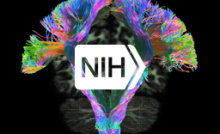
A recent virtual workshop hosted by the Panel for the Future of Science and Technology (STOA) brought together representatives from the International Brain Initiative (IBI) to discuss approaches to shaping the future of international neuroscience collaborations.
On October 12, 2021, the European Parliament’s Panel for the Future of Science and Technology (STOA) hosted a workshop that brought together members of the International Brain Initiative (IBI) to discuss the future of international neuroscience collaborations, neuroethics, data policies, and dissemination of scientific resources. Considering the massive challenges involved in comprehensively understanding the human brain, the IBI, like the NIH BRAIN Initiative and other neuroscience initiatives, has undertaken large-scale and highly collaborative efforts to advance brain science. IBI initiatives seek to provide a robust forum for global sharing of information and resources to drive collaborations.
The event was introduced with a talk by the 2014 Nobel Prize winner in Physiology or Medicine, Dr. Edvard Moser. Dr. Moser set the tone of the workshop by discussing the immense complexity of the brain that underlies major unanswered questions related to cognition, sensation, and perception. He gave a brief historical overview of major advancements in understanding higher-order brain functions and emphasized the current need for concerted international collaborations to achieve further progress. In particular, Dr. Moser highlighted the need for developing new tools and technologies to precisely record and modulate neural circuits.
Progress in these capabilities will drive the early detection and prevention of disease, enhance advancements in brain-machine-interface and artificial intelligence technology, and ultimately improve the quality of life for human patients. However, progress in these areas will also present new challenges and considerations beyond technological capabilities. Among these are strategies for data sharing, engagement with the scientific community, and diversity in patient representation. IBI member panelists then discussed solutions to these challenges and highlighted the latest scientific achievements.
NIH BRAIN Initiative Director, Dr. John Ngai, noted that data governance and data coordination may be the longest lasting legacies of concerted brain initiatives around the globe. Dr. Ngai stated the importance of ensuring that progress in brain initiative goals benefit all of society. These sentiments were echoed by the other panelists who also stressed the importance of education, acknowledging cultural differences in partner countries, and the need to synergize efforts between individual countries.
Given the top-down nature of global initiatives like the IBI, panelists advocated a need to remain connected with researchers, suggesting that efforts to inform scientists around the globe of major programs should be prioritized to enhance awareness and participation. Other topics covered in the session included the need to connect with policy makers and industry for effective, ethical, and equitable use of new advances. The discussion also covered recent advancements such as the BRAIN initiative Cell Census Network’s (BICCN) recent milestone in mapping of the mammalian primary motor cortex, and Japan’s Brain/MINDS work on developing a marmoset model for the study of brain connectivity and dementia.
The workshop came to a close with remarks from Dr. Amy Bernard, Director of Life Sciences at the Kavli Foundation, a BRAIN Initiative Alliance (BIA) member, stressing the importance of advancing and synchronizing different efforts of the international neuroscience community.
The workshop took place on October 12th from 15:00 to 17:30 CEST and was streamed online. More information, including the workshop agenda, can be found here.
